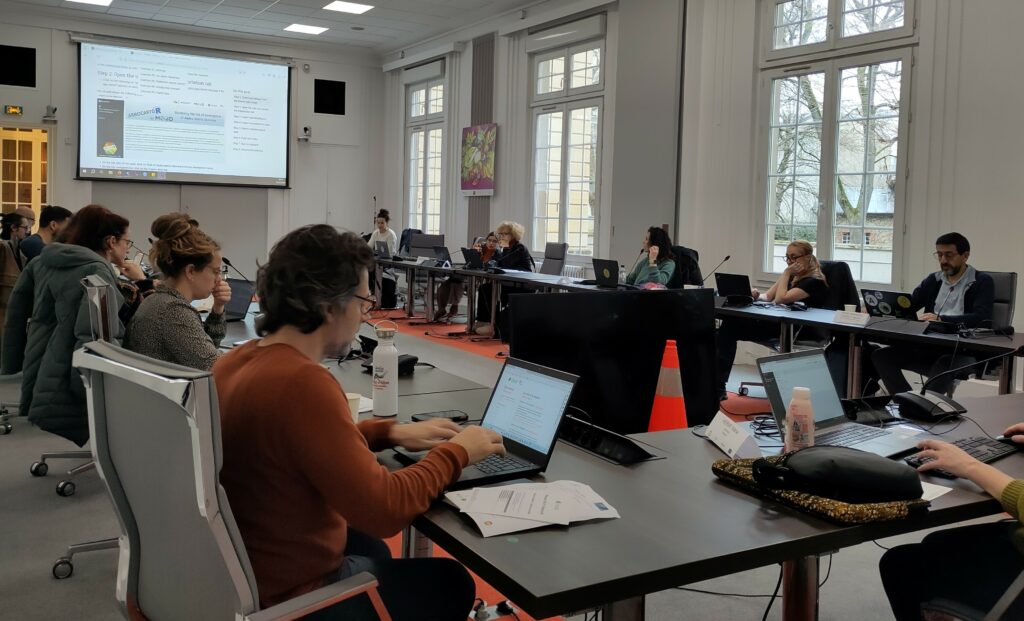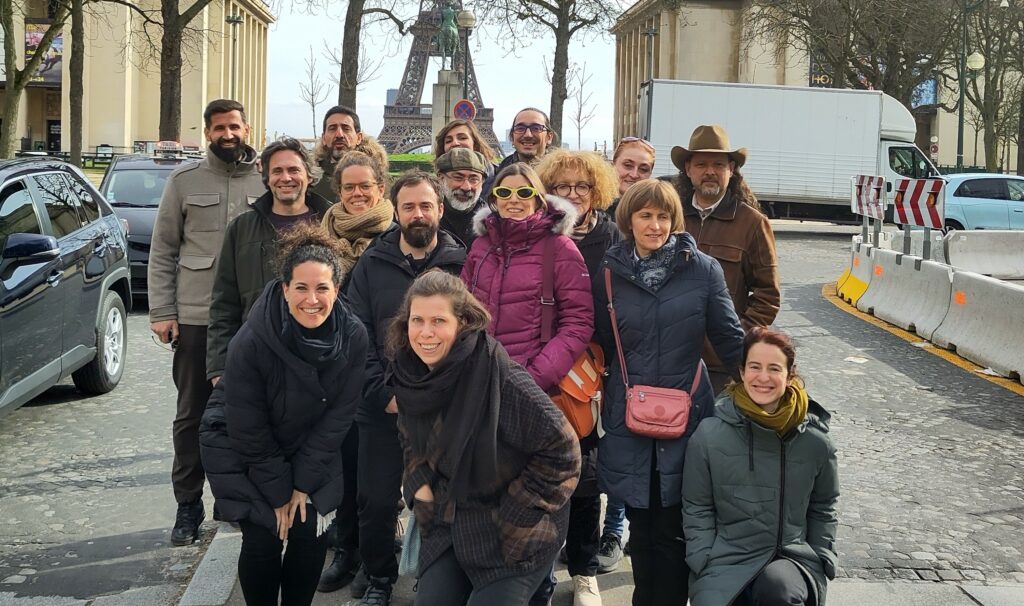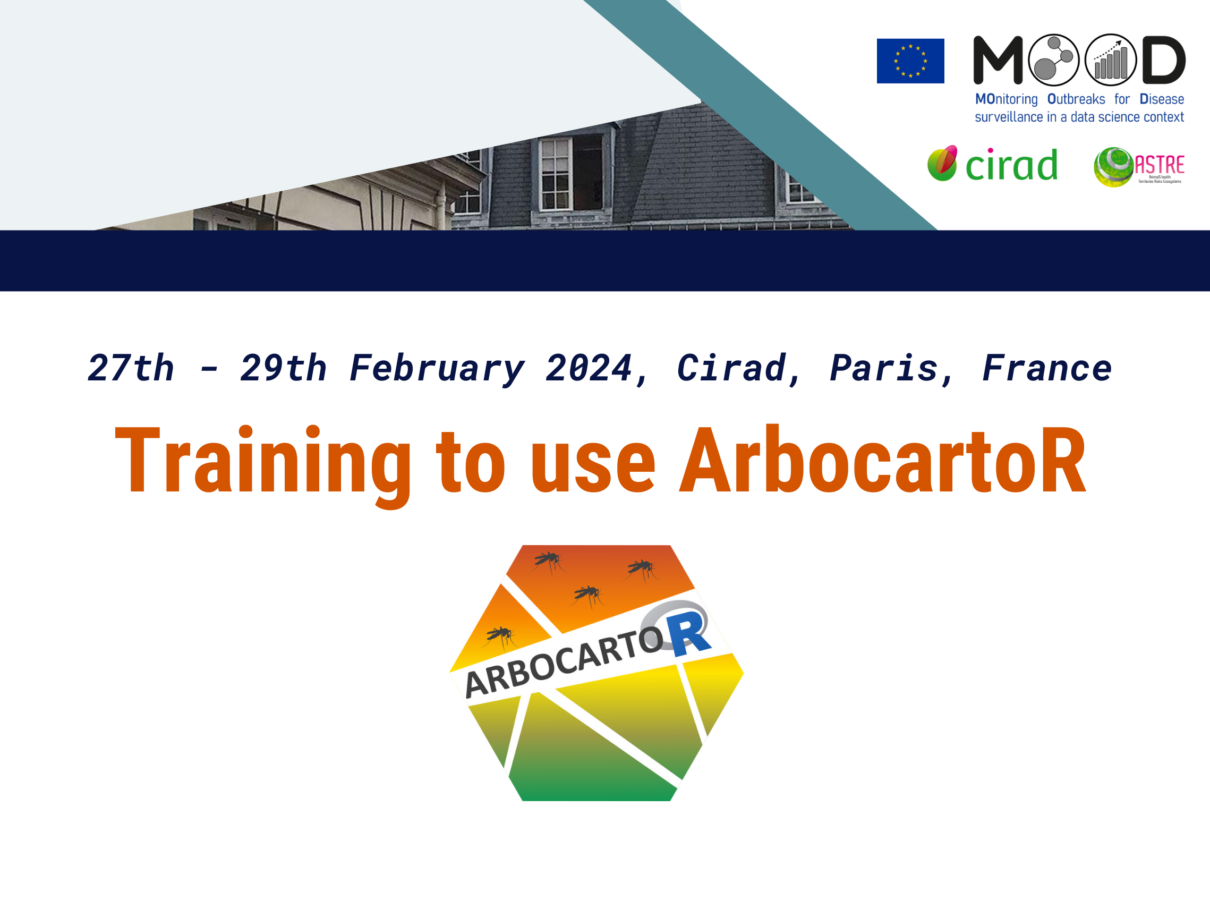
From February 27th to 29th, 2024, fifteen participants from all across Europe gathered to be trained on using the ArbocartoR, the online platform developed at Cirad (France) in the frame of the MOOD project.
The tool allows to simulate and explore spatial and temporal population dynamics of Aedes mosquitoes (albopictus and aegypti) in various environments and the dynamics of transmission of three arboviruses: dengue, zika, chikungunya. It also provides key figures to support the decision process in implementing surveillance and control. You can find out about the origins of ArbocartoR here.
The training workshop took place at the Cirad headquarters, in Paris, France, with three objectives:
- To teach the participant to use ArbocartoR.
- To exchange with other European experts involved in mosquito population control (discussion between the field and research experts and the development team).
- To co-write the development specifications for future developments of the ArbocartoR tool to make the tool more adapted to field practitioners needs.

The main challenge of this training was related to the various backgrounds and expertise of the participants. With the diversity of professional environments, understanding the different points of view, obstacles, and levers was both interesting and demanding for all.
After these three days, participants were fully proficient in using and manipulating the tool and associated data (simulated and field-related). Over the coming months, they will continue to familiarize themselves with the tool and explore the possibilities it can offer in their work and with their own data. In parallel, the necessary evolutions highlighted during the workshop will be developed and integrated into a new version. Upon request, a check-up meeting will be organized in six month-time.

To finish, a word from Pachka Hammami, supervisor of this training:
One of the highlights of this workshop was its richness. It brought together many different professions, from public health practionners, to entomologists, modelers, researchers, and field operators. As all participants were able to learn from each other’s experience and knowledge, the workshop was a constructive exchange, both for the students and for the ArbocartoR team.


